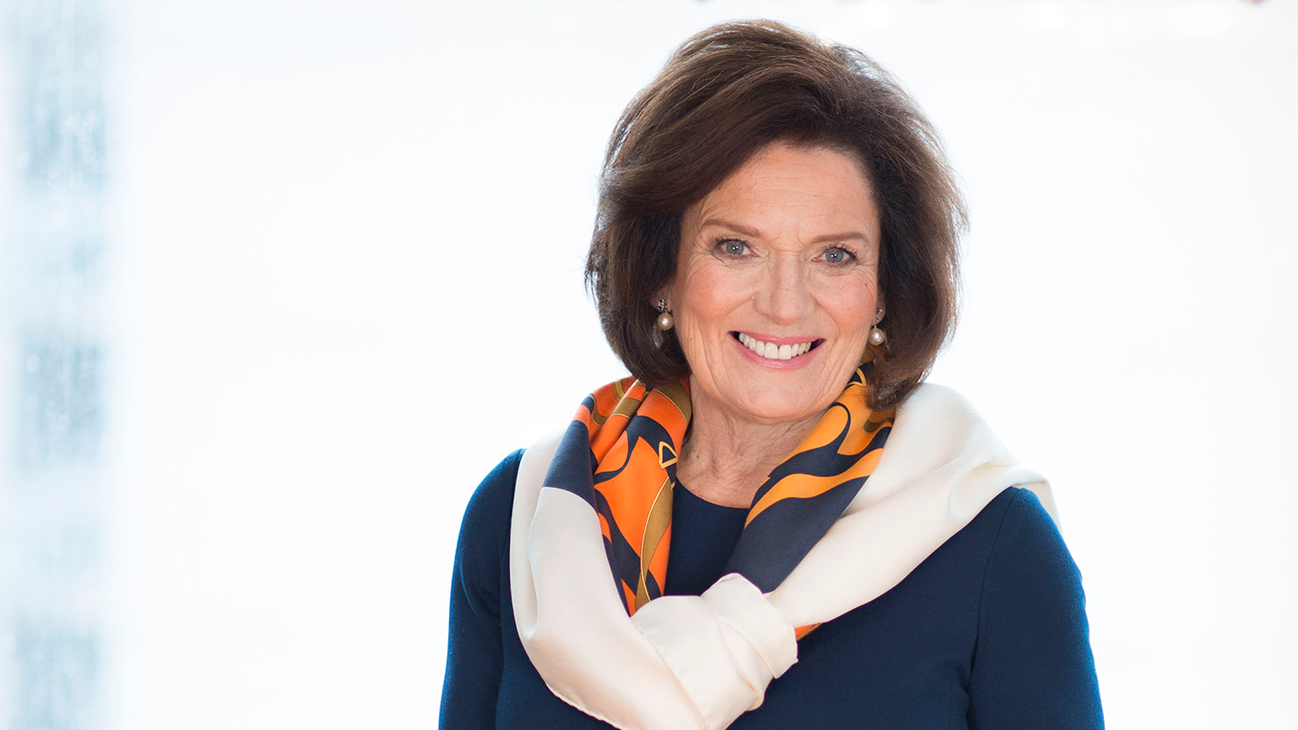Celebrated Canadian icon Margaret Trudeau has made a lasting impact as a mental-health issues advocate. From becoming a prime minister’s wife at a young age, to the loss of both her son and her former husband, to living with bi-polar disorder, Margaret shares her personal stories to remind others of the importance of nurturing the body, mind, and spirit.
She shared her incredible journey at WE Day in New York City and that’s where Good Housekeeping caught up with her and put together this excellent interview:
Margaret Trudeau has so many stories. The former wife of Prime Minister Pierre Trudeau, a polarizing liberal leader who originally sparked “Trudeaumania” in the ’60s, she landed her first cover of TIME as a 22-year-old bride in 1971. On an official state visit to Cuba, Fidel Castro, whom she called “very attractive” in her bestselling 2010 memoir, Changing My Mind, told her that while he forced himself to look at the sun every day to make his eyes stronger, “Do you know what I find harder?” he asked. “That is to look into the blue of your eyes.” Ted Kennedy and Mick Jagger were also said to be fans.
Today, the mother of five children — Justin, who became Canada’s Prime Minister in 2015, Alexandre, Michel, Kyle and Ally — is most inspiring when she talks about her struggle with mental illness, particularly as a young mother. After going undiagnosed for decades, she was eventually found to have bipolar disorder, which causes depression and mania. Her rock bottom came when her third son, Michel, died tragically in an avalanche at just 23 years old. “I felt that I, too, had died in that avalanche,” she wrote in Changing My Mind. “And if not dead yet, death was all I wanted.” Through medication and Cognitive Behavioral Therapy, Margaret was finally able to conquer her illness.
Now she is a mental health advocate and has spent years volunteering with national aid organizations such as WaterCan (now WaterAid, which aims to supply developing countries with safe, clean water) and most recently WE Charity, a worldwide development organization and youth empowerment movement, and the first charity to earn the Good Housekeeping Humanitarian Seal. Last week, while in New York for WE Day, which celebrates young people who have excelled in their volunteer efforts at school, she sat down with Good Housekeepingfor an exclusive interview. Here are just a few of the most powerful things she said:
On the stigma of mental illness:
“With the younger generations, there isn’t the same stigma. It’s really the older generations. We have a hard time getting them to feel that if you have a mental illness, you’re not flawed, you have an illness. I remember, after my first postpartum depression, I didn’t know what had happened to me. I was stuck in this gray depression where I just wanted to retreat and pull the covers over my head and weep. My mother and I, we went to a psychiatrist, and he just patted me on the head and told me I had baby blues, which was not helpful, obviously. And if you’re bipolar, as deeply as you go into depression you will climb up into mania. When I really got sick and needed help, my mother said to my sister, ‘Oh, don’t take her to a psychiatrist! They only blame the mother.’ We kind of blamed Mom that she couldn’t accept that I needed help. You can’t fix yourself out of a mental health issue. You can’t wake up and say, Today I’m not being depressed! It’s a process to get well, but there is recovery.”
How she “changed her mind”:
“The first thing that happens to someone with a mental illness, in the throes of it, is that they lose all their self-esteem. They don’t think they fit in. I used to say I walked on the shady, dark side of the street, with my head down, alone. With Cognitive Behavioral Therapy (CBT), I was able to walk over to the bright side of the street, lift my head up and make contact with other people. During CBT, you describe one of your outrageous ideas to the therapist — how you feel or how you feel victimized, and they will turn it around, like, ‘Well, there’s another way to think about it, Margaret, why don’t you consider this?’ It’s a reprogramming of the mind. It isn’t easy; there isn’t one pill that’s going to make you better. It’s about taking steady baby steps toward being well.”
Read the complete interview here.

